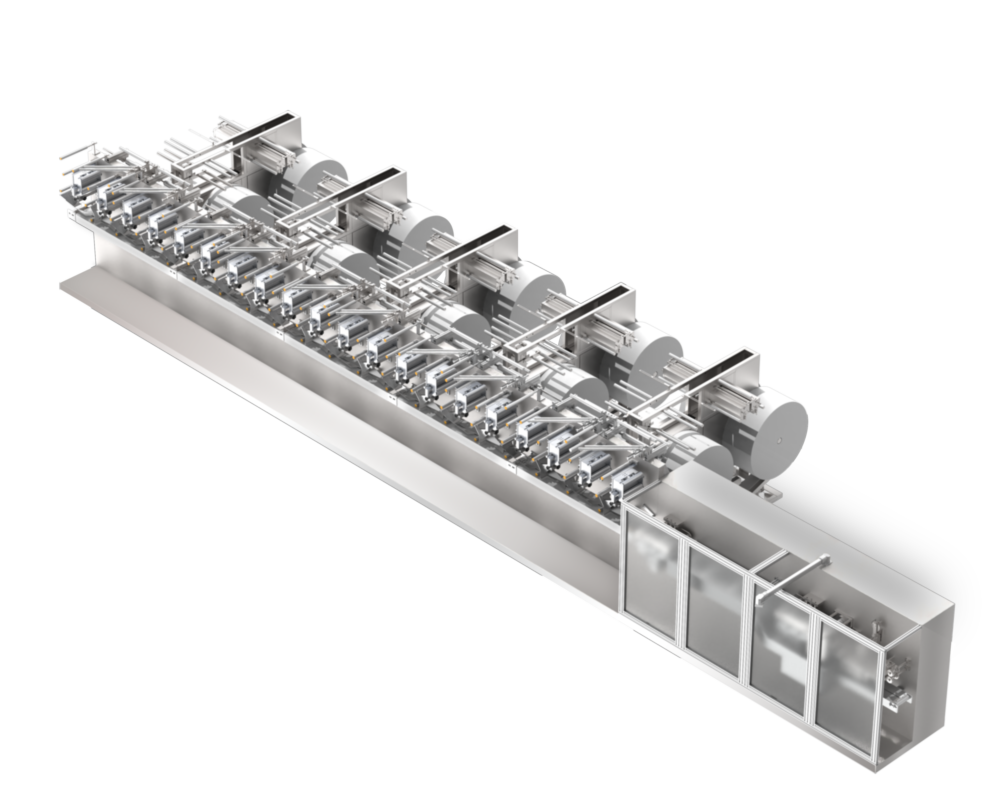Using towel folding machines comes with several challenges and limitations:
- Complexity of Folding Styles: Machines may be limited in the variety of folding styles they can produce, which might restrict their applicability to specific towel types or sizes.
- Size and Thickness Variation: Towels come in various sizes and thicknesses, which can pose challenges for machines programmed for specific dimensions. Adjusting machines to accommodate different sizes might require manual intervention and adjustments.
- Maintenance Requirements: Regular maintenance is essential for optimal machine performance. However, maintenance tasks, such as cleaning, lubrication, and part replacements, can lead to downtime if not managed efficiently.
- Technological Limitations: Older machines might lack the technological advancements necessary for increased automation, precision, or adaptability to different towel materials.
- Speed and Output: Some machines might have limitations in terms of speed and output capacity, affecting overall productivity, especially in high-demand scenarios.
- Fold Quality Control: Ensuring consistent fold quality, especially with varying towel sizes or materials, might be challenging. Machines might struggle with maintaining uniformity in the folding process.
- Operational Complexity: Operating and programming these machines might require specific expertise or training, leading to complexities for new users or operators.
- Customization and Flexibility: Machines might lack flexibility in accommodating unique or customized folding patterns, limiting their versatility for certain specialized towel products.
- Initial Setup and Installation: Setting up and installing these machines might be time-consuming, requiring precise calibration and adjustments to ensure proper functionality.
- Environmental Impact: Some older machines might lack energy-saving features, leading to higher energy consumption and environmental concerns.
- Integration with Production Lines: Integrating these machines into existing production lines might pose challenges, especially if they have compatibility issues with other machinery or systems.
Addressing these challenges often involves investing in newer technologies, regular maintenance schedules, operator training, and considering the limitations when selecting machines based on specific towel types or production requirements.
How do technological advancements impact the design or capabilities of towel folding machines?
Technological advancements significantly influence the design and capabilities of towel folding machines in various ways:
- Automation and Precision: Advanced technologies enable higher levels of automation in folding processes, reducing manual intervention and increasing precision. This results in consistent and accurate folding patterns.
- Versatility in Folding Styles: Modern machines offer more flexibility in folding styles, allowing customization for different towel sizes, types, and folding patterns. They can adapt to various customer preferences or industry demands.
- Improved Speed and Efficiency: Technological upgrades enhance the speed and overall efficiency of towel folding machines. This increase in productivity helps meet higher demand without compromising on quality.
- Smart Controls and Interfaces: Integration of user-friendly interfaces and smart controls simplifies machine operation, reducing the learning curve for operators and enabling smoother functioning.
- Quality Control Mechanisms: Advanced sensors and monitoring systems ensure better quality control throughout the folding process. China towel folding machine These systems detect errors or irregularities, minimizing defects and improving overall product quality.
- Customization Capabilities: Machines equipped with advanced technology can handle different towel sizes, materials, and folding specifications. This flexibility enables customization based on specific customer requirements.
- Energy Efficiency: Newer machines often incorporate energy-saving features, such as optimized motor systems, standby modes, or efficient heating elements, reducing overall energy consumption.
- Integration with Other Systems: Advanced machines are designed to seamlessly integrate with other production line systems or software, allowing for a more interconnected and efficient workflow.
- Remote Monitoring and Maintenance: Some machines utilize IoT capabilities for remote monitoring, predictive maintenance, and troubleshooting, enhancing machine uptime and reducing maintenance downtime.
- Data Analytics and Optimization: Incorporation of data analytics helps optimize machine performance by analyzing production data, identifying bottlenecks, and suggesting improvements for increased efficiency.
- Environmental Considerations: Manufacturers often focus on developing environmentally friendly features, such as reduced waste production, recyclable materials, or eco-friendly production processes, aligning with sustainability goals.
Technological advancements continually push the boundaries of towel folding machine capabilities, allowing for greater efficiency, precision, customization, and sustainability while meeting the evolving needs of the market.
